Alzheimer's Disease
How to submit an article:
- Registered users can submit any published journal article that has a unique DOI (Digital Object Identifier) name or link to Research Hub.
- For example, you can paste the full DOI link:
https://doi.org/10.1109/5.771073or just the DOI name:10.1109/5.771073into the field above and click submit. - The person who is first to submit a valid article to Research Hub will forever be credited for it, and every article submission earns you +6 Research Points.
Alzheimer's disease is a progressive brain disorder that affects memory, thinking, and behavior, ultimately leading to cognitive decline and loss of independence.
Related Topics
Published research studies are articles that present the findings of original research that has undergone a peer-review process and has been made publicly available in scholarly journals, books or other media.
Evaluation of possible neuroprotective effects of virgin coconut oil on aluminum‐induced neurotoxicity in an in vitro Alzheimer's disease model
2023 Nov 21 Journal of Applied Toxicology Demirel G, Sanajou S, Yirün A, Çakir DA, Berkkan A, Baydar T, et al.
Experimental Study Alzheimer's DiseaseVirgin coconut oil shows potential therapeutic promise against Alzheimer's disease by reducing key markers and enhancing neurotransmitter parameters.

Carrot and carotene and multiple health outcomes: an umbrella review of the evidence
2023 Jan 17 Journal of the Science of Food and Agriculture Yi X, Li J, Liao D, Peng G, Zheng X, Xu H, et al.
Review Article Cataracts Carotene Lung Cancer Carrot Anticancer Stomach Cancer Breast Cancer Alzheimer's Disease Urothelial Cancer SunburnCarrot and carotene consumption could diminish the risk of a wide range of negative health consequences, including multiple types of cancer.
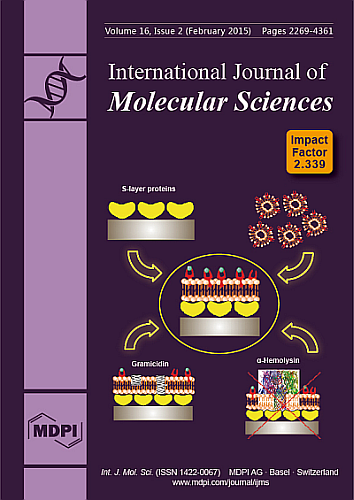
Magnesium and the Brain: A Focus on Neuroinflammation and Neurodegeneration
2022 Dec 23 International Journal of Molecular Sciences Maier JAM, Locatelli L, Fedele G, Cazzaniga A, Mazur A
Review Article Alzheimer's Disease Neurodegenerative Diseases Multiple Sclerosis Parkinson's Disease MagnesiumMagnesium, essential for harmonising nerve signals and preserving the blood-brain barrier, may be linked to neurodegenerative disorders when its balance is disrupted.

Green Tea Catechins Attenuate Neurodegenerative Diseases and Cognitive Deficits
2022 Nov 06 Molecules Afzal O, Dalhat MH, Altamimi ASA, Rasool R, Alzarea SI, Almalki WH, et al.
Review Article Green Tea Cognitive Function Multiple Sclerosis Parkinson's Disease Neuroprotective Alzheimer's Disease Neurodegenerative DiseasesGreen tea's catechins demonstrate therapeutic effects against neurodegenerative diseases via anti-inflammatory, antioxidant actions, and activating diverse brain cellular pathways.
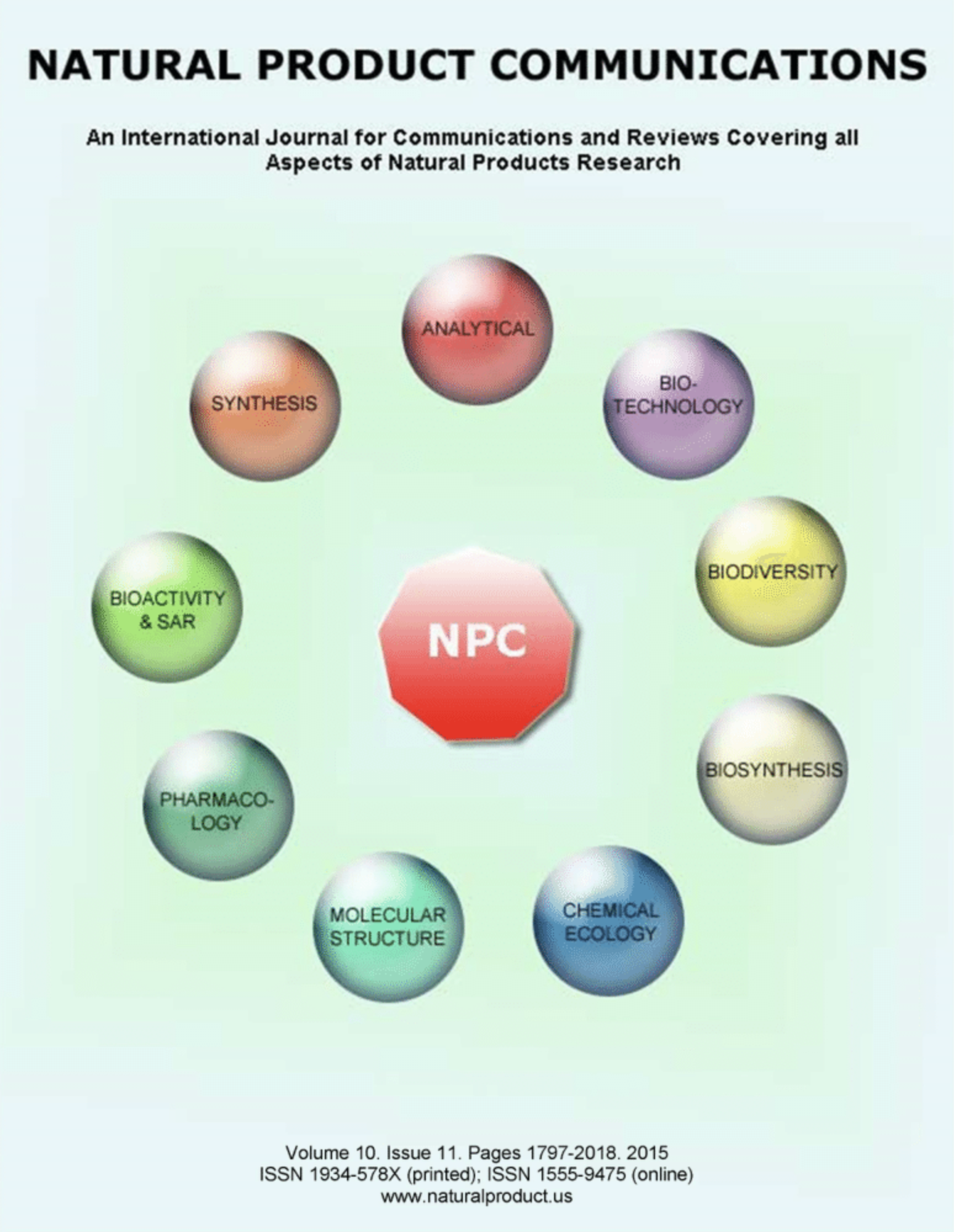
Screening Traditional Chinese Medicine Combination for Co-Treatment of Alzheimer's Disease and Major Depressive Disorder by Network Pharmacology
2022 Aug Natural Product Communications Huang Z, Fang Y, Wang X, Wang Q, Wang T
Network Pharmacology DepressionCombining traditional Chinese medicine may offer potential therapeutic value in treating both Alzheimer's disease and major depressive disorder simultaneously.
Research insights are moderated by the Research Hub team and offer an at-a-glance overview of interesting research findings.
2023 Journal of Applied Toxicology
Virgin coconut oil shows potential therapeutic promise against Alzheimer's disease by reducing key markers and enhancing neurotransmitter parameters.
Experimental Study
Evaluation of possible neuroprotective effects of virgin coconut oil on aluminum‐induced neurotoxicity in an in vitro Alzheimer's disease model
Demirel G, Sanajou S, Yirün A, Çakir DA, Berkkan A, Baydar T, et al.

2023 Journal of the Science of Food and Agriculture
Carrot and carotene consumption could diminish the risk of a wide range of negative health consequences, including multiple types of cancer.
Review Article Anticancer Breast Cancer Carotene Carrot Cataracts
Carrot and carotene and multiple health outcomes: an umbrella review of the evidence
Yi X, Li J, Liao D, Peng G, Zheng X, Xu H, et al.

2022 International Journal of Molecular Sciences
Magnesium, essential for harmonising nerve signals and preserving the blood-brain barrier, may be linked to neurodegenerative disorders when its balance is disrupted.
Review Article Magnesium Multiple Sclerosis Neurodegenerative Diseases Parkinson's Disease
Magnesium and the Brain: A Focus on Neuroinflammation and Neurodegeneration
Maier JAM, Locatelli L, Fedele G, Cazzaniga A, Mazur A

2022 Molecules
Green tea's catechins demonstrate therapeutic effects against neurodegenerative diseases via anti-inflammatory, antioxidant actions, and activating diverse brain cellular pathways.
Review Article Cognitive Function Green Tea Multiple Sclerosis Neurodegenerative Diseases Neuroprotective
Green Tea Catechins Attenuate Neurodegenerative Diseases and Cognitive Deficits
Afzal O, Dalhat MH, Altamimi ASA, Rasool R, Alzarea SI, Almalki WH, et al.

2022 Natural Product Communications
Combining traditional Chinese medicine may offer potential therapeutic value in treating both Alzheimer's disease and major depressive disorder simultaneously.
Network Pharmacology Depression
Screening Traditional Chinese Medicine Combination for Co-Treatment of Alzheimer's Disease and Major Depressive Disorder by Network Pharmacology
Huang Z, Fang Y, Wang X, Wang Q, Wang T
Review Articles
Review articles summarise and critically evaluate the current state of research on a specific topic or field by synthesising multiple primary research studies.

Carrot and carotene and multiple health outcomes: an umbrella review of the evidence
2023 Jan 17 Journal of the Science of Food and Agriculture Yi X, Li J, Liao D, Peng G, Zheng X, Xu H, et al.
Review Article Cataracts Carotene Lung Cancer Carrot Anticancer Stomach Cancer Breast Cancer Alzheimer's Disease Urothelial Cancer SunburnCarrot and carotene consumption could diminish the risk of a wide range of negative health consequences, including multiple types of cancer.

Magnesium and the Brain: A Focus on Neuroinflammation and Neurodegeneration
2022 Dec 23 International Journal of Molecular Sciences Maier JAM, Locatelli L, Fedele G, Cazzaniga A, Mazur A
Review Article Alzheimer's Disease Neurodegenerative Diseases Multiple Sclerosis Parkinson's Disease MagnesiumMagnesium, essential for harmonising nerve signals and preserving the blood-brain barrier, may be linked to neurodegenerative disorders when its balance is disrupted.

Green Tea Catechins Attenuate Neurodegenerative Diseases and Cognitive Deficits
2022 Nov 06 Molecules Afzal O, Dalhat MH, Altamimi ASA, Rasool R, Alzarea SI, Almalki WH, et al.
Review Article Green Tea Cognitive Function Multiple Sclerosis Parkinson's Disease Neuroprotective Alzheimer's Disease Neurodegenerative DiseasesGreen tea's catechins demonstrate therapeutic effects against neurodegenerative diseases via anti-inflammatory, antioxidant actions, and activating diverse brain cellular pathways.
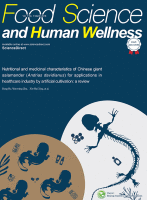
Green tea, epigallocatechin gallate and the prevention of Alzheimer’s disease: Clinical evidence
2022 Jul Food Science and Human Wellness Lange KW, Lange KM, Nakamura Y
Systematic Review EGCG Alzheimer's DiseaseBioactive components in green tea have demonstrated potential neuroprotective effects and might play a role in preventing Alzheimer’s disease.

Coconut oil as a therapeutic treatment for alzheimer's disease: a review
2022 Mar Journal of Future Foods Sandupama P, Munasinghe D, Jayasinghe M
Review Article Coconut Oil Alzheimer's DiseaseCoconut oil has potential as a nutritional supplement for treating Alzheimer’s disease, due to its medium chain fatty acids and antioxidant properties.
Clinical Trials
Clinical trials are research studies that involve people and are conducted to evaluate the safety and efficacy of new treatments or interventions, such as drugs, medical devices, or behavioural therapies.
Study Protocols
Published study protocols are detailed plans that outline the objectives, methodology, statistical analyses, and organisation of a research study that have been made publicly available for others to review and use as a reference.
Presentation Slides

Experimental Study
Virgin coconut oil shows potential therapeutic promise against Alzheimer's disease by reducing key markers and enhancing neurotransmitter parameters.
Demirel G, Sanajou S, Yirün A, Çakir DA, Berkkan A, Baydar T, Erkekoğlu P

Review Article
Carrot and carotene consumption could diminish the risk of a wide range of negative health consequences, including multiple types of cancer.
Yi X, Li J, Liao D, Peng G, Zheng X, Xu H, Zhang T, Ai J

Review Article
Magnesium, essential for harmonising nerve signals and preserving the blood-brain barrier, may be linked to neurodegenerative disorders when its balance is disrupted.
Maier JAM, Locatelli L, Fedele G, Cazzaniga A, Mazur A

Review Article
Green tea's catechins demonstrate therapeutic effects against neurodegenerative diseases via anti-inflammatory, antioxidant actions, and activating diverse brain cellular pathways.
Afzal O, Dalhat MH, Altamimi ASA, Rasool R, Alzarea SI, Almalki WH, Murtaza BN, Iftikhar S, Nadeem S, Nadeem MS, Kazmi I

Network Pharmacology
Combining traditional Chinese medicine may offer potential therapeutic value in treating both Alzheimer's disease and major depressive disorder simultaneously.
Huang Z, Fang Y, Wang X, Wang Q, Wang T

Systematic Review
Bioactive components in green tea have demonstrated potential neuroprotective effects and might play a role in preventing Alzheimer’s disease.
Lange KW, Lange KM, Nakamura Y

Review Article
Coconut oil has potential as a nutritional supplement for treating Alzheimer’s disease, due to its medium chain fatty acids and antioxidant properties.
Sandupama P, Munasinghe D, Jayasinghe M

Review Article
Coconut water possesses unique compound profiles that imbue it with a broad spectrum of medical properties, incorporating aspects of nutrition, pharmacology, and disease prevention.
Rethinam P, Krishnakumar V

Cohort Study
Regular consumption of chocolate relates to lowered risk of death from all causes, cardiovascular disease, and Alzheimer’s disease, particularly in non-smokers.
Zhong GC, Hu TY, Yang PF, Peng Y, Wu JJ, Sun WP, Cheng L, Wang CR

Review Article
Coconut oil has potential therapeutic value in treating Alzheimer's disease by suppressing neuro-inflammation, reversing neurodegeneration, and inhibiting secretion of harmful peptides.
Ramesh SV, Krishnan V, Praveen S, Hebbar KB
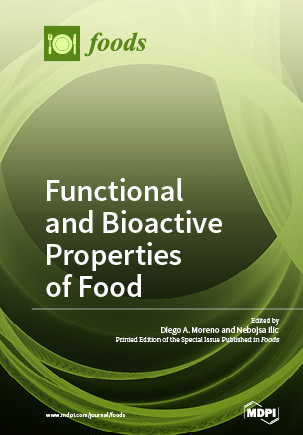
Review Article
Fermented soybean products alleviate and possibly prevent neurodegenerative conditions, including Parkinson's and Alzheimer's diseases.
Jang CH, Oh J, Lim JS, Kim HJ, Kim JS
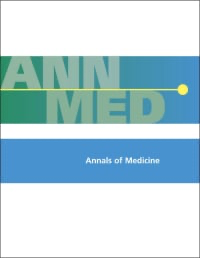
Systematic Review
The existing evidence, although with low level of confidence, suggests that walnut intake may have a beneficial effect on cognition-related outcomes, including cognitive function, mood, and stroke.
Cahoon, D., Shertukde, S. P., Avendano, E. E., Tanprasertsuk, J., Scott, T. M., Johnson, E. J., Chung, M., & Nirmala, N.

Review Article
Tian Ma, a traditional Chinese medicine, shows promise as a complementary therapy for aging-related diseases, including Alzheimer's and cerebrocardiovascular diseases.
Heese K

Review Article
Regular coffee consumption, due to its bioactive compounds, may have protective effects against chronic disorders and certain neurodegenerative conditions.
Socała K, Szopa A, Serefko A, Poleszak E, Wlaź P
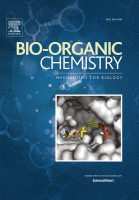
Experimental Study
Green tea polyphenolic compounds, (-)-epigallocatechin (EGC) and (-)-epicatechin-3-gallate (ECG), can diminish harmful Alzheimer's disease linked Aβ aggregates and ameliorate symptoms.
Chen T, Yang Y, Zhu S, Lu Y, Zhu L, Wang Y, Wang X
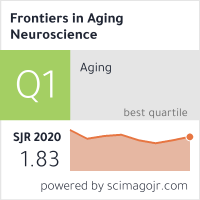
Review Article
Acupuncture appears to be a promising complementary treatment for Alzheimer's disease, according to findings from systematic reviews and meta-analyses.
Huang J, Shen M, Qin X, Wu M, Liang S, Huang Y
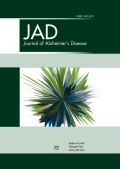
Clinical Study
High phenolic early harvest extra virgin olive oil shows notable improvement in cognitive function compared to a moderate phenolic version and the Mediterranean diet alone.
Tsolaki M, Lazarou E, Kozori M, Petridou N, Tabakis I, Lazarou I, Karakota M, Saoulidis I, Melliou E, Magiatis P

Systematic Review
Acupuncture plus drug therapy may have a more beneficial effect for Alzheimer's disease patients than drug therapy alone on general cognitive function in the short and medium term and on Activities of Daily Living scores in the medium term.
Wang, Y. Y., Yu, S. F., Xue, H. Y., Li, Y., Zhao, C., & Jin, Y. H.

Systematic Review
These reports suggest the benefits of a walnut-enriched diet in brain disorders and in other chronic diseases, due to the additive or synergistic effects of walnut components for protection against oxidative stress and inflammation in these diseases.
Chauhan A, Chauhan V.
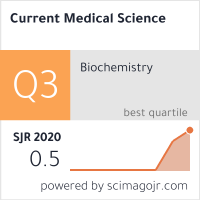
Systematic Review
Acupuncture yielded positive results for Alzheimer's Disease as determined via clinical efficacy rate, Mini-Mental State Examination score, Ability of Daily Living Scale score and Alzheimer’s Disease Assessment Scale-Cognition score.
Huang, Q., Luo, D., Chen, L. et al.

Review Article
Evidence indicates that acupuncture treatment may be of benefit in several neuropsychiatric disorders, including depression, anxiety, schizophrenia, and Alzheimer's Disease.
Tu CH, MacDonald I, Chen YH
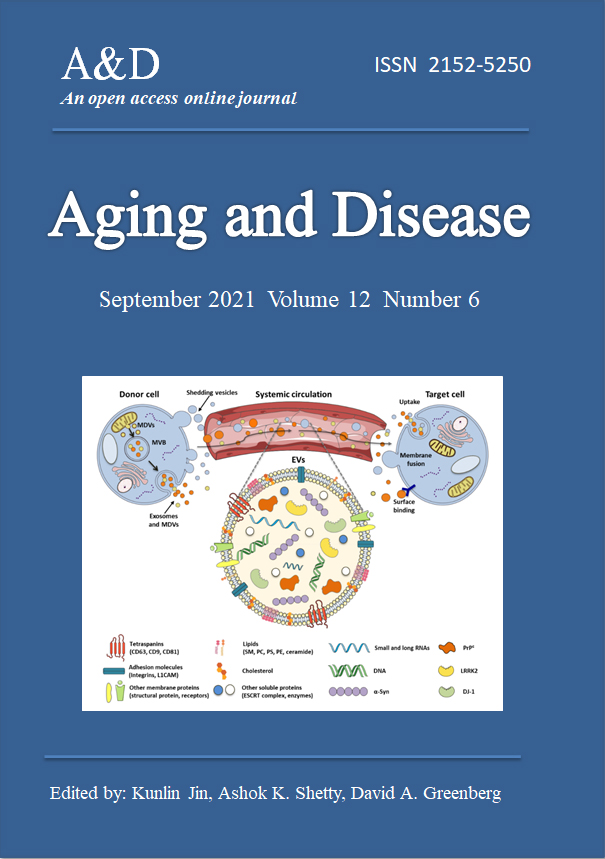
Review Article
The widely-used herbal formula Dang Gui Shao Yao San can alleviate cognitive dysfunction in Alzheimer's disease by improving the function of various central nervous systems.
Fu X, Wang Q, Wang Z, Kuang H, Jiang P

Systematic Review
Acupuncture has been found potentially more effective than drugs in improving cognitive function and daily life in Alzheimer's disease patients, while also demonstrating safety.
Zhou, J., Peng, W., Xu, M., Li, W., & Liu, Z.
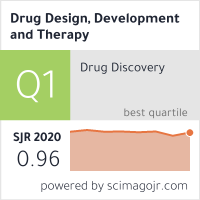
Review Article
A mixture of active polysaccharides from Goji berries have shown multiple pharmacological activities, including anti-aging, antioxidative, anti-fatigue, anticancer, anti-diabetic, anti-viral, hepatoprotective, cardioprotective, neuroprotective, hypolipidemic, radioprotective, anti-osteoporosis, anti-inflammatory, and immunomodulating effects.
Cheng J, Zhou Z, Sheng H, He L, Fan X, He Z, Sun T, Zhang X, Zhao RJ, Gu L, Cao C, Zhou S
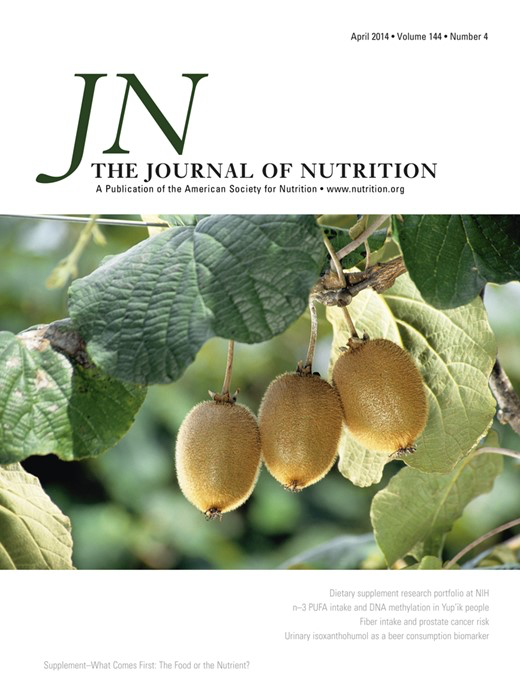
Systematic Review
Polyphenolic compounds found in walnuts not only reduce the oxidant and inflammatory load on brain cells but also improve interneuronal signaling, increase neurogenesis, and enhance sequestration of insoluble toxic protein aggregates.
Poulose SM, Miller MG, Shukitt-Hale B
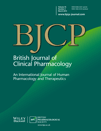
Review Article
Cocoa and chocolate, rich in antioxidant molecules like epicatechin, enhance brain health, stimulate brain perfusion, and reduce the risk of Alzheimer's disease and stroke.
Nehlig A

Experimental Study
Tremella fuciformis, a mushroom, shows potential as a protective agent against neurodegenerative diseases like Alzheimer's by promoting cell growth and reducing toxicity.
Park KJ, Lee SY, Kim HS, Yamazaki M, Chiba K, Ha HC
Executive Summary
Write an executive summary in the form of a blog article on the topic of "Research into Chinese medicine treatment for Alzheimer's Disease" summarising the research below and using language that can be easily understood by patients and avoiding medical jargon using a professional and caring tone of voice.
Write an executive summary in the form of a blog article on the topic of "Researched Chinese medicine treatments for Alzheimer's Disease" summarising the research below in an objective and easy to understand way, and using language that can be easily understood by patients. Group the article into Chinese medicine treatments first, followed by nutrition and other treatments. Avoid using medical jargon and use a professional and caring tone of voice.
Write me a concise but easy to understand executive summary on the topic of "Chinese medicine treatments for Alzheimer's Disease" based on the following research that I will give you. Your summary should be 2 paragraphs long in Australian English spelling and include references to the studies.
A Experimental Study published in 2023 in the journal Journal of Applied Toxicology found that Virgin coconut oil shows potential therapeutic promise against Alzheimer's disease by reducing key markers and enhancing neurotransmitter parameters. In this study, the SH-SY5Y cell lines were cultured in its regular growth medium which was then differentiated by reducing its fetal bovine serum content and adding retinoic acid. Further, brain-derived neurotrophic factor was added in unison with retinoic acid, completing the differentiation process by the seventh day. The study groups comprised of a control group, groups that received virgin coconut oil, Aluminum, both or neither, an Alzheimer model group, and a group replicating the Alzheimer model exposed to Aluminum and virgin coconut oil. The measurable aspects in this study included specific indicators of Alzheimer's disease like hyperphosphorylated Tau protein, amyloid beta 1-40 peptide, and amyloid precursor protein, oxidative stress parameters, and neurotransmitter-related parameters. In the results, it was revealed that virgin coconut oil was successful in reducing levels of amyloid beta and hyperphosphorylated Tau protein in the groups. This composition also seemed to decrease oxidative stress levels associated with Alzheimer's disease, delivering improvement in neurotransmitter parameters, which supports the hypothesis that virgin coconut oil can be therapeutic against this progressive neurological disorder.
A Review Article published in 2023 in the journal Journal of the Science of Food and Agriculture found that Carrot and carotene consumption could diminish the risk of a wide range of negative health consequences, including multiple types of cancer. An umbrella review methodology was adopted to identify connections between carrot and carotene intake and various health outcomes. We turned to databases such as Web of Science, PubMed, and Embase to find the needed data. The analysis included the collected evidence from both interventional and observational studies that focused on carrots, carotene, and any related health impact. To estimate the summary effect size for each correlation, both random and fixed effects models were employed. The study reviewed a total of 1329 studies and utilized the data from 30 meta-analyses with 26 health outcomes that fit the eligibility requirements. These featured outcomes related to various types of cancer, fractures, age-related cataract, sunburn, and Alzheimer's disease. The associations were analyzed between the health outcomes and the intake of carrots, intake of carotene, and serum carotene levels.
A Review Article published in 2022 in the journal International Journal of Molecular Sciences found that Magnesium, essential for harmonising nerve signals and preserving the blood-brain barrier, may be linked to neurodegenerative disorders when its balance is disrupted. The researchers performed a narrative review, beginning with a quick overview of the role of magnesium in the brain. Magnesium is crucial for healthy nerve signal transmission and the upkeep of the blood-brain barrier, which protects the brain from harmful substances in the blood. Then, they discussed evidence suggesting a connection between disrupted magnesium balance and a variety of neurodegenerative disorders. In the discussion of the results, it was posited that a deficiency in magnesium might contribute to low-grade systemic inflammation, which is common in many illnesses. Specifically, they argued that such inflammation in the brain is a characteristic feature of neurodegenerative diseases. The review found evidence that disruptions in the body's magnesium balance could be associated with multiple sclerosis, Alzheimer's, and Parkinson's diseases.
A Review Article published in 2022 in the journal Molecules found that Green tea's catechins demonstrate therapeutic effects against neurodegenerative diseases via anti-inflammatory, antioxidant actions, and activating diverse brain cellular pathways. The research primarily evaluates the effect of polyphenolic compounds found in green tea, known as catechins, on neurodegenerative diseases. By conducting several interventional and observational studies on humans, the research explores the anti-cancer, anti-obesity, antidiabetic, anti-inflammatory, and neuroprotective properties of these compounds. The biological, pharmacological, antioxidant, and metal chelating abilities of catechins, particularly their influence on different cellular pathways within the brain, are intensively studied. The results elucidate that catechins exhibit multiple neuroprotective effects. Their anti-inflammatory and antioxidant properties help to inhibit excessive production of cytokines, and inflammatory pathways, while also controlling metal ions and free radicals. Researchers have further established that catechins may curb the phosphorylation of the tau protein and aggregation of amyloid beta, both key markers in neurodegenerative diseases. Additionally, these compounds show potential in reducing alpha-synuclein levels and augmenting dopamine levels. Hence, they significantly contribute to the prevention and treatment of neurodegenerative diseases, including Alzheimer's, Parkinson's, multiple sclerosis, and cognitive deficits.
A Network Pharmacology published in 2022 in the journal Natural Product Communications found that Combining traditional Chinese medicine may offer potential therapeutic value in treating both Alzheimer's disease and major depressive disorder simultaneously. Researchers leveraged network pharmacology and molecular docking technology to identify the effect of traditional Chinese medicine and its multitarget components for treating Alzheimer's disease and major depressive disorder. They analyzed 234 TCM prescriptions for major depressive disorder, identifying the top 10 most commonly used herbs, reflecting 198 active ingredients. They then did comparative analysis for prospective ingredient targets related to both disorders. The analysis included exploring common and key targets and representative compounds for effective treatment. The combination of Xiangfu (Cyperi Rhizoma), Gancao (Licorice) and Chaihu (Radix Bupleuri) constituted the major component of representative ingredients that were analyzed. The results yielded the identification of 30 common targets, 9 key targets, and 7 representative compounds relevant to both disorders. Their findings revealed these common targets were essential to regulate multiple pathways linked to both disorders, emphasizing the potential for a cohesive treatment approach. Furthermore, molecular docking studies unveiled the binding affinity of several natural chemicals, including quercetin, kaempferol, β-sitosterol, stigmasterol, isorhamnetin, naringenin, and 8-isopentenyl-kaempferol, with key prospective targets. This suggests that a TCM combination could provide therapeutic advantages in treating both Alzheimer's disease and major depressive disorder.
A Systematic Review published in 2022 in the journal Food Science and Human Wellness found that Bioactive components in green tea have demonstrated potential neuroprotective effects and might play a role in preventing Alzheimer’s disease. In this study, the researchers focused on the potential preventative effects of bioactive compounds, specifically (-)-epigallocatechin-3-gallate, present in tea, on Alzheimer's disease (AD). This interest was based on recognition of the importance of lifestyle-related factors, including diet, in the primary prevention of AD. They compiled and analyzed the findings from various preclinical studies which pointed towards the neuroprotective qualities of these compounds. The results reveal an association between the consumption of green tea and a reduction in the risk of age-related cognitive decline and AD. However, these results do not establish a causal relationship. That is, while people who drink green tea appear to have lower rates of AD, the study cannot confirm that green tea consumption is the reason for this reduced prevalence. The researchers also emphasized that while the preventative effects of green tea were deduced from preclinical (animal) studies, human-based clinical trials yielded unsatisfactory evidence regarding tea's preventive or therapeutic effect on AD.
A Review Article published in 2022 in the journal Journal of Future Foods found that Coconut oil has potential as a nutritional supplement for treating Alzheimer’s disease, due to its medium chain fatty acids and antioxidant properties. The study examined the unique chemical composition of coconut oil that is enriched with medium chain fatty acids, unlike long-chain fatty acids. This distinction matters because these medium chain fatty acids have a specific digestion and metabolism pathway—they bypass the lymphatic system and go straight to the liver through the portal vein. This unique attribute in absorption and metabolism allows these fats to readily form ketone bodies, which are an efficient energy source for brains, especially those experiencing cognitive impairments like Alzheimer's disease. As for the discussion of the results, the findings showed that medium-chain triglycerides in coconut oil get metabolized and absorbed to mitigate the severity of certain physiological risk factors—elevated LDL levels, hypertension, Type 2 diabetes, obesity, and insulin resistance—all risk factors that contribute to the prevalence and incidence of Alzheimer's disease. Additionally, coconut oil contains many polyphenolic compounds that serve as antioxidants, combating oxidative stress and inflammation—in turn, potentially downregulating the etiology of Alzheimer's disease. The antioxidant capacity, however, can vary depending on the processing conditions used in extraction techniques of coconut oil.
A Review Article published in 2022 in the journal Reference Series in Phytochemistry found that Coconut water possesses unique compound profiles that imbue it with a broad spectrum of medical properties, incorporating aspects of nutrition, pharmacology, and disease prevention. The study utilized comprehensive analysis to assess the chemical profile of coconut water, identifying a range of components including phytohormones, enzymes, antioxidant compounds, vitamins, minerals, and phenolic compounds. These components are known to contribute to the water's biological activity and pharmacological effects, thereby enabling a raft of medicinal properties inherent to coconut water. The water was found to feature anti-microbial, anti-bacterial, anti-inflammatory, anti-hypertensive, rejuvenating, hepatoprotective, hypolipidemic, and diuretic properties. An examination of the therapeutic effects of coconut water revealed a significant impact on gastric dysfunction, dysentery, and child malnutrition alongside notable capabilities to manage hypertension. The water was found to promote exercise performance, reduce swelling, dissolve kidney stones, improve kidney function, improve digestion, relieve constipation, reduce the risk of heart disease, lower high blood pressure, and improve cholesterol levels. Consumption of tender coconut water was specifically found to reduce the risk of heart disease, help prevent Alzheimer’s disease pathologies and prevent osteoporosis in experimental animals. The unique nutritional profile of coconut water was also found to provide it with the capacity to balance body chemistry and fight cancer.
A Cohort Study published in 2021 in the journal Aging found that Regular consumption of chocolate relates to lowered risk of death from all causes, cardiovascular disease, and Alzheimer’s disease, particularly in non-smokers. The study traps a population-based cohort of 91,891 participants aged between 55-74 years from across the United States. The consumption of chocolate by these participants is gauged through a food frequency questionnaire. The Cox regression model was utilized to generate risk estimates. In an average monitoring period of 13.5 years, 19,586 all-cause deaths were recorded. In the discussion of the outcomes, the study reveals an inverse correlation between regular chocolate intake and all-cause mortality. This advantage was more significant in those participants who never smoked compared to current or ex-smokers. A stronger inverse association was found for deaths from cardiovascular disease and Alzheimer's disease. A nonlinear dose-response pattern was discovered for all-cause and cardiovascular deaths, with the least risk seen at a chocolate intake of 0.7 and 0.6 servings per week, respectively.
A Review Article published in 2021 in the journal Trends in Food Science & Technology found that Coconut oil has potential therapeutic value in treating Alzheimer's disease by suppressing neuro-inflammation, reversing neurodegeneration, and inhibiting secretion of harmful peptides. The methodology of this study hinges on investigating the impact of coconut oil-derived medium chain fatty acids (MCFAs) on brain glucose metabolism, which is linked to Alzheimer's Disease (AD). These MCFAs rapidly metabolize into ketone bodies, possibly providing alternative energy for cerebral tissue. This research evaluates the recent findings on the role of coconut oil in mitigating AD symptoms, including its dietary effects on reducing neuro-inflammation, reversing neurodegenerative processes, and inhibiting the secretion of amyloid β peptides, which contribute to AD. The results of the investigation reveal a promising correlation between coconut oil and the amelioration of AD symptoms. The effectiveness of coconut oil is believed to be due to its ability in enhancing cell survival pathways, suppressing neuro-inflammation, and reversing neurodegeneration. Coconut oil also proves useful in preventing the secretion of harmful amyloid β peptides, as seen in animal models and human clinical trials. These multi-pronged biochemical effects underline the immense therapeutic potential of coconut oil in treating AD.
A Review Article published in 2021 in the journal Foods found that Fermented soybean products alleviate and possibly prevent neurodegenerative conditions, including Parkinson's and Alzheimer's diseases. The study involved the fermentation of cooked soybeans with specified bacteria and fungi species, a process known to produce a range of bioactive compounds. These unique compounds, which are most often beneficial to health, are contained in fermented soybean products that are a staple in East Asian diets. In analyzing the results, the focus was on the potential of these fermented soy foods and their components in managing neurodegenerative diseases. Notably, the findings suggested a significant preventive and curative effect of these products on such ailments as Alzheimer's and Parkinson's diseases. The paper, therefore, presents fermented soy foods as potentially reliable natural solutions to these neurodegenerative conditions.
A Systematic Review published in 2021 in the journal Annals of Medicine found that The existing evidence, although with low level of confidence, suggests that walnut intake may have a beneficial effect on cognition-related outcomes, including cognitive function, mood, and stroke. The existing evidence, although with low level of confidence, suggests that walnut intake may have a beneficial effect on cognition-related outcomes, including cognitive function, mood, and stroke. Limitations in study design and comparability render the available evidence insufficient to draw a firm conclusion regarding the effects of walnut on cognition in adults. High quality studies and standardized interventions and measurement tools are necessary to determine the role of walnut intake in cognitive health.
A Review Article published in 2020 in the journal Evidence-Based Complementary and Alternative Medicine found that Tian Ma, a traditional Chinese medicine, shows promise as a complementary therapy for aging-related diseases, including Alzheimer's and cerebrocardiovascular diseases. This study utilized previous research to methodically analyze the efficacy and safety of Tian Ma in treating aging-related diseases. Investigations spanned across various well-structured disease models, with particularly close attention paid to Alzheimer's Disease. The study trialed not just on its raw form, but also explored how it performs within different herbal preparations and as pure natural extracts. The study's findings indicate that Tian Ma might present a viable alternative treatment for aging-related cerebrocardiovascular diseases and dementia. Specifically, its promising attributes were most noticeable in the context of complementary therapy for Alzheimer's Disease. The potential effectiveness of Tian Ma seems to be maintained across the various preparations, whether in herbal mixtures or as a pure natural product. The study thus concludes on a hopeful note regarding the use of Tian Ma in combatting debilitating age-linked conditions.
A Review Article published in 2020 in the journal International Journal of Molecular Sciences found that Regular coffee consumption, due to its bioactive compounds, may have protective effects against chronic disorders and certain neurodegenerative conditions. The paper evaluates the neuroprotective potential of the main bioactive elements in coffee: caffeine, chlorogenic acid, caffeic acid, trigonelline, kahweol, and cafestol. The analysis is focused on the coffee beverage as a complex mixture of these bioactive compounds. The comprehensive study includes in vitro and in vivo preclinical tests to determine the specific health benefits each of these compounds can offer. The results indicate that regular coffee intake may have defensive effects against a variety of enduring disorders; including cardiovascular disease, type 2 diabetes, obesity, and some forms of cancer. Additionally, an interesting correlation is found between coffee consumption and a lower risk of developing certain neurodegenerative conditions such as Alzheimer's disease, Parkinson's disease, and dementia. The study also highlights that regular coffee intake could possibly lower the risk of stroke. However, the study mentions that the mechanisms enabling these effects are yet to be fully understood.
A Experimental Study published in 2020 in the journal Bioorganic Chemistry found that Green tea polyphenolic compounds, (-)-epigallocatechin (EGC) and (-)-epicatechin-3-gallate (ECG), can diminish harmful Alzheimer's disease linked Aβ aggregates and ameliorate symptoms. Green tea compounds EGC and ECG were tested for their effects on Cu/Zn-induced or self-assembled Aβ aggregation involved in Alzheimer's disease. To do so, a combination of thioflavine T fluorescent spectrometry, inductively coupled plasma mass spectrometry, UV-Vis spectroscopy, transmission electron microscopy, silver staining, immunohistochemistry, and immunofluorescence assays were utilized. Findings indicate that these compounds bind mildly to Cu and Zn and reduce their caused or self-assembled Aβ aggregates. Moreover, these compounds were shown to manage neurotoxicity in mouse neuroblastoma Neuro-2a cells by decreasing the production of reactive oxygen species (ROS). From the findings, the EGC and ECG in green tea showed potential in reducing the toxicity of Aβ oligomers and fibrils which are heavily linked to Alzheimer's disease. Notably, ECG has the ability to traverse the blood-brain barrier and reduce Aβ plaques within the mouse brain, showcasing its potential for neuron protection. This study highlights the potential of green tea - specifically, its polyphenolic compounds - in the prevention or reduction of Alzheimer's disease symptoms.
A Review Article published in 2020 in the journal Frontiers in Aging Neuroscience found that Acupuncture appears to be a promising complementary treatment for Alzheimer's disease, according to findings from systematic reviews and meta-analyses. The study analysed the role of acupuncture as a complementary treatment for Alzheimer's disease by perusing systematic reviews and meta-analyses using data from eight electronic databases. The researchers employed a variety of tools such as the Assessing the Methodological Quality of Systematic Reviews 2, Risk of Bias in Systematic Reviews tool, Preferred Reporting Items for Systematic Reviews and Meta-Analyses, and the Grading of Recommendations, Assessment, Development, and Evaluation to determine the quality of methodology, risk of potential bias, and quality of the evidence. A total of eleven systematic reviews and meta-analyses met the necessary criteria for inclusion in this study. The results, despite indicating that acupuncture may show promise as a complementary treatment for Alzheimer's disease, all rated critically low in quality when assessed with the tools employed. Some methodological weaknesses remained, particularly pertaining to the protocol and registration, search strategy, risk of bias, additional analyses, and funding. Only a small portion of the reviews exhibited a low risk of bias. There was no high-quality evidence found, but moderate-quality evidence was provided for seven outcomes. The risk of bias in the original trials seemed more prevalent than inconsistency, imprecision, and publication bias.
A Clinical Study published in 2020 in the journal Journal of Alzheimer's Disease found that High phenolic early harvest extra virgin olive oil shows notable improvement in cognitive function compared to a moderate phenolic version and the Mediterranean diet alone. A randomized prospective study was conducted examining the effects of high phenolic early harvest extra virgin olive oil (HP-EH-EVOO) and moderate phenolic extra virgin olive oil (MP-EVOO) against the Mediterranean Diet (MeDi) in individuals with mild cognitive impairment. Participants were genetically tested for susceptibility to Alzheimer's disease and had their cognitive functions tested at the start and after 12 months. They were then randomly put into one of three groups: those who received HP-EH-EVOO, those who received MP-EVOO, and those who only received instructions on following the MeDi. The results showed that participants who consumed HP-EH-EVOO demonstrated better cognitive performance in almost all areas over the course of the study, compared to those who consumed MP-EVOO and those who followed the MeDi. MP-EVOO consumers also demonstrated noticeable cognitive improvement compared to the MeDi group, who exhibited worse or similar cognitive performance to their baseline in almost all areas. Moreover, participants who consumed either form of olive oil performed better in cognitive tests, regardless of their predisposition to Alzheimer's disease.
A Systematic Review published in 2020 in the journal Frontiers in Aging Neuroscience found that Acupuncture plus drug therapy may have a more beneficial effect for Alzheimer's disease patients than drug therapy alone on general cognitive function in the short and medium term and on Activities of Daily Living scores in the medium term. 30 RCTs (2,045 patients) were included in this review. The main finding of our review suggests acupuncture plus drug therapy may be more beneficial for AD patients than drug therapy alone in the areas of general cognitive function in the short term and medium term, and ADL skills in the medium term. However, acupuncture alone may not have superior effects when compared with drug therapy on general cognitive function, ADL skills, or incidence of adverse events. Duration of treatment may not modify the effect of acupuncture in comparison with drug therapy.
A Systematic Review published in 2020 in the journal Nutrients found that These reports suggest the benefits of a walnut-enriched diet in brain disorders and in other chronic diseases, due to the additive or synergistic effects of walnut components for protection against oxidative stress and inflammation in these diseases. Walnuts contain several components that have antioxidant and anti-inflammatory effects. Animal and human studies from our and other groups suggest that supplementation with walnuts in the diet may improve cognition and reduce the risk and/or progression of mild cognitive impairment and Alzheimer's disease. Furthermore, several animal and human studies have suggested that walnuts may also decrease the risk or progression of other brain disorders such as Parkinson’s disease, stroke, and depression, as well as of cardiovascular disease and type 2 diabetes. Together, these reports suggest the benefits of a walnut-enriched diet in brain disorders and in other chronic diseases, due to the additive or synergistic effects of walnut components for protection against oxidative stress and inflammation in these diseases.
A Systematic Review published in 2019 in the journal Current Medical Science found that Acupuncture yielded positive results for Alzheimer's Disease as determined via clinical efficacy rate, Mini-Mental State Examination score, Ability of Daily Living Scale score and Alzheimer’s Disease Assessment Scale-Cognition score. Eight databases were searched for articles published up to and including July 2017, and 13 studies fulfilling the inclusion criteria were identified. The main outcomes assessed were clinical efficacy rate, Mini-Mental State Examination score, Ability of Daily Living Scale score, Alzheimer’s Disease Assessment Scale-Cognition score, Hasegawa’s Dementia Scale (HDS) score, and adverse events. The methodological quality of the articles was assessed using Cochrane’s risk of bias. All the studies compared the efficacy of acupuncture with that of medication, and were published in Chinese journals. Meta-analysis revealed that acupuncture yielded positive results as determined via all the indexes scored except the HDS. Only one of the studies reported adverse events associated with acupuncture and medication. The rate of adverse events in the medication group was 13%. In most of the studies assessed in the current meta-analysis, acupuncture alone was better than conventional western medicines for the treatment of AD.
A Review Article published in 2019 in the journal Frontiers in Psychiatry found that Evidence indicates that acupuncture treatment may be of benefit in several neuropsychiatric disorders, including depression, anxiety, schizophrenia, and Alzheimer's Disease. The pathophysiology of these disorders may be associated with glutamate dysregulation, marked by a high rate of glutamate release and elevated expression of glutamate receptors and glutamate transporters in the CNS. The ability of acupuncture stimulation to modulate glutamate receptor and EAAT expression suggests that the treatment effects of acupuncture are underpinned by its intervention in the dysregulated glutamate system. Further preclinical and clinical studies are needed to clarify the possible mechanisms of acupuncture in these neuropsychiatric disorders and to establish protocols for treatment guidelines.
A Review Article published in 2015 in the journal Aging & Disease found that The widely-used herbal formula Dang Gui Shao Yao San can alleviate cognitive dysfunction in Alzheimer's disease by improving the function of various central nervous systems. The study examines the impact of the herbal formula Danggui-Shaoyao-San (DSS), commonly used for treating various gynecological conditions, on neurological disorders, particularly Alzheimer's disease. DSS has been observed to exert beneficial effects on the central monoamine neurotransmitter systems, improving the functionality of dopaminergic, adrenergic, and serotonergic nervous systems. Furthermore, it has shown a mitigating effect on the dysfunction of the central cholinergic nervous system and a scopolamine-induced decrease in Acetylcholine levels. In the discussion of results, it was discerned that DSS demonstrates anti-inflammatory and antioxidant activities, while also reducing cell apoptosis in the hippocampus. Additionally, it's suggested DSS could play a role in moderating free radical-mediated neurological diseases. Of major significance was the observation that DSS can potentially alleviate cognitive dysfunction in Alzheimer's patients, positioning it as a potentially effective treatment for this disease.
A Systematic Review published in 2015 in the journal Medicine found that Acupuncture has been found potentially more effective than drugs in improving cognitive function and daily life in Alzheimer's disease patients, while also demonstrating safety. The research methodology involved a comprehensive exploration of multiple databases including Central Register of Controlled Trials, PubMed, MEDLINE, Embase, PsycINFO, and various Chinese platforms from their inception to June 2014. The focus was on Randomized Controlled Trials where Alzheimer's disease patients received treatment either solely through acupuncture or in conjunction with one kind of drug. Data was independently extracted by two authors, and results concerning adverse reactions related to acupuncture were documented. In analyzing the results of ten trials incorporating a total of 585 participants, it was clear that acupuncture demonstrated advantages over drugs alone, particularly in terms of improving scores on the Mini Mental State Examination scale. Additionally, evidence suggested that integrating acupuncture with the Alzheimer drug Donepezil was more effective in improving the same scale score when contrasted with using Donepezil as a sole treatment method. Adverse reactions linked to acupuncture were reported in only two trials out of 141, pointing to a low incidence of complications related to the procedure.
A Review Article published in 2014 in the journal Drug Design, Development and Therapy found that A mixture of active polysaccharides from Goji berries have shown multiple pharmacological activities, including anti-aging, antioxidative, anti-fatigue, anticancer, anti-diabetic, anti-viral, hepatoprotective, cardioprotective, neuroprotective, hypolipidemic, radioprotective, anti-osteoporosis, anti-inflammatory, and immunomodulating effects. The mechanisms for these beneficial effects are multifaceted, involving a number of signaling molecules and pathways. A better understanding of how LBPs act on these signaling pathways and molecules can improve our knowledge on glycobiology. Further studies using systems pharmacology approaches such as proteomic and metabolomic analysis are needed to uncover the molecular target networks of LBPs. Despite the importance of Goji in the traditional Chinese medicine and increased popularity in Western countries, clinical safety data on LBPs are sparse. A safe and optimal use of herbal medicines like LBPs requires a full understanding of their pharmacokinetics, side effects, and mechanisms of action. The dose–response and dose–toxicity relationships of LBPs should be established in animal and human studies. It is essential to develop new formulations to ensure the maximum efficacy and effectiveness and minimum side effects of LBP-related health products.
A Systematic Review published in 2014 in the journal The Journal of Nutrition found that Polyphenolic compounds found in walnuts not only reduce the oxidant and inflammatory load on brain cells but also improve interneuronal signaling, increase neurogenesis, and enhance sequestration of insoluble toxic protein aggregates. In conclusion, age-related increases in oxidative stress and inflammation, especially when coupled with metabolic and cardiovascular dysfunction, lead to neurodegeneration and cognitive decline. This process of brain aging occurs even in the absence of specific neurodegenerative diseases. Although most chronic neurodegenerative diseases cannot currently be cured, preventive measures earlier in life can protect cognitive function in old age and may prevent or delay the onset of debilitating neurodegenerative diseases. Dietary interventions provide a safe and palatable means of modifying the body's internal environment and, importantly, the neuronal environment within the brain. Walnut polyphenols and tocopherols can reduce oxidative stress and inflammation; furthermore, PUFAs help maintain neuronal membrane integrity and attenuate protein aggregation involved in AD. In rodent studies, the addition of dietary walnuts, equivalent to a single serving of walnuts for humans, was sufficient to improve both motor and cognitive behavior in aged animals. In humans, the inclusion of walnuts in the diet improved cardiovascular health, which is itself a risk factor for neurodegenerative diseases and age-related cognitive decline. Taken together, this evidence suggests that the integration of walnuts into a healthy diet could be an effective means of prolonging health spans, slowing the processes of brain aging, and reducing the risk of chronic neurodegenerative disease.
A Review Article published in 2013 in the journal British Journal of Clinical Pharmacology found that Cocoa and chocolate, rich in antioxidant molecules like epicatechin, enhance brain health, stimulate brain perfusion, and reduce the risk of Alzheimer's disease and stroke. The study involved taking a comprehensive look at the substances contained in cocoa powder and chocolate, their absorption into the brain, and their resulting stimulatory effects on multiple areas of the brain, particularly those connected to comprehension and memory. It also delved into the beneficial effects of epicatechin, a flavonoid found abundantly in cocoa and chocolate, which showed improvements in cognition in both animals and humans. Interestingly, the research showed that the consumption of chocolate could induce mood enhancement, elaborating on its common consumption during times of emotional stress. The study further investigated flavonoids' preservation of cognitive abilities in rats during aging, noting the reduced risk of developing Alzheimer's disease and the decreased likelihood of stroke in humans, demonstrating their wider effects beyond just mood enhancement. The research then looked into flavonoids' interactions within the various signaling pathways related to proteins and lipids in the brain, shedding light on how they inhibit neuron death from neurotoxic elements like oxygen radicals, all while promoting neuron survival and synaptic plasticity. The overall intent of the research was to gather and examine the available data regarding the effects of cocoa and chocolate on brain health and cognitive capacities.
A Experimental Study published in 2007 in the journal Mycobiology found that Tremella fuciformis, a mushroom, shows potential as a protective agent against neurodegenerative diseases like Alzheimer's by promoting cell growth and reducing toxicity. The methodology involved testing the neurotrophic effects of Tremella fuciformis, a mushroom, using a hot water extract of it. This testing was done by utilizing microscopic monitoring of its ability to encourage neurite outgrowth in PC12h cells, essentially examining the mushroom's ability to stimulate nerve growth. The researchers compared the effectiveness of the extract to other natural substances that had previously been studied in promoting nerve growth. In the discussion of results, the study demonstrated that the hot water extract of T. fuciformis was highly effective at promoting neurite outgrowth in PC12h cells. This effectiveness outperformed other natural substances in previous studies. Moreover, when the cells were treated with T. fuciformis extract before being exposed to a β-amyloid peptide treatment (which is associated with Alzheimer's disease), the extract significantly reduced the toxicity. This suggests the potential application of T. fuciformis as a preventative measure in counteracting neurodegenerative diseases such as Alzheimer's.
Moderation Tools
Topic
Sign In
Users not signed in are limited to viewing the 5 most recent items of content.